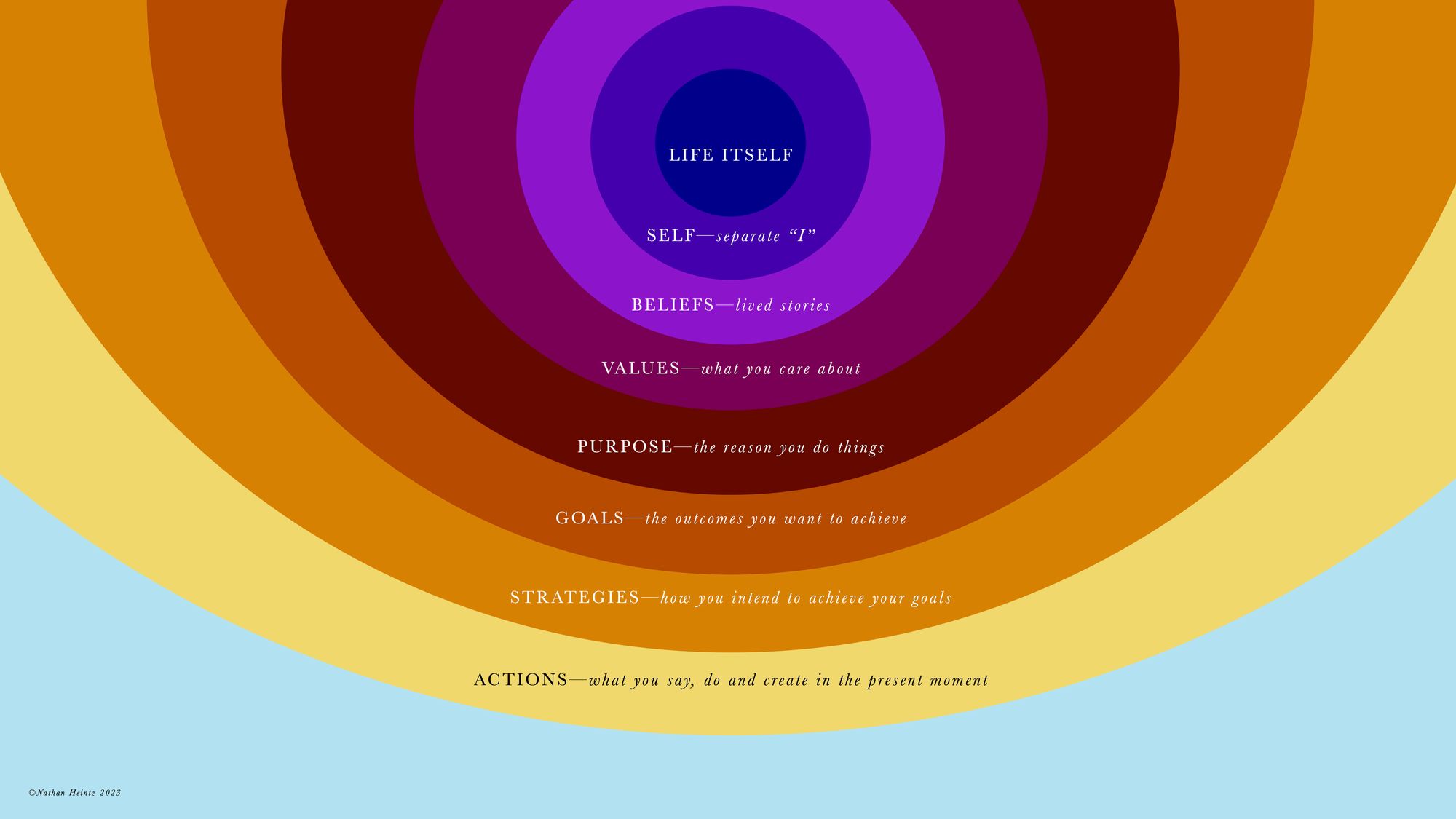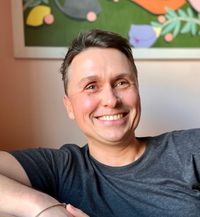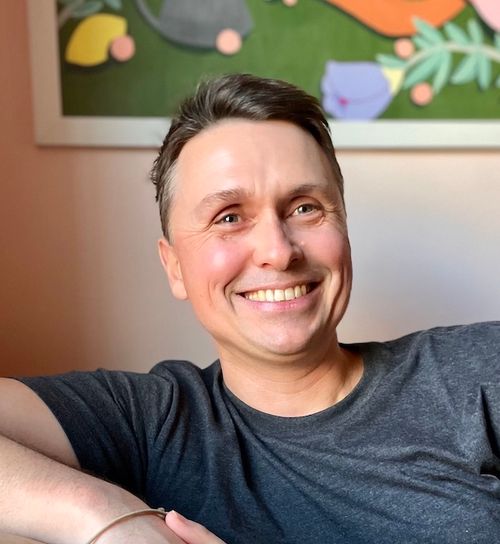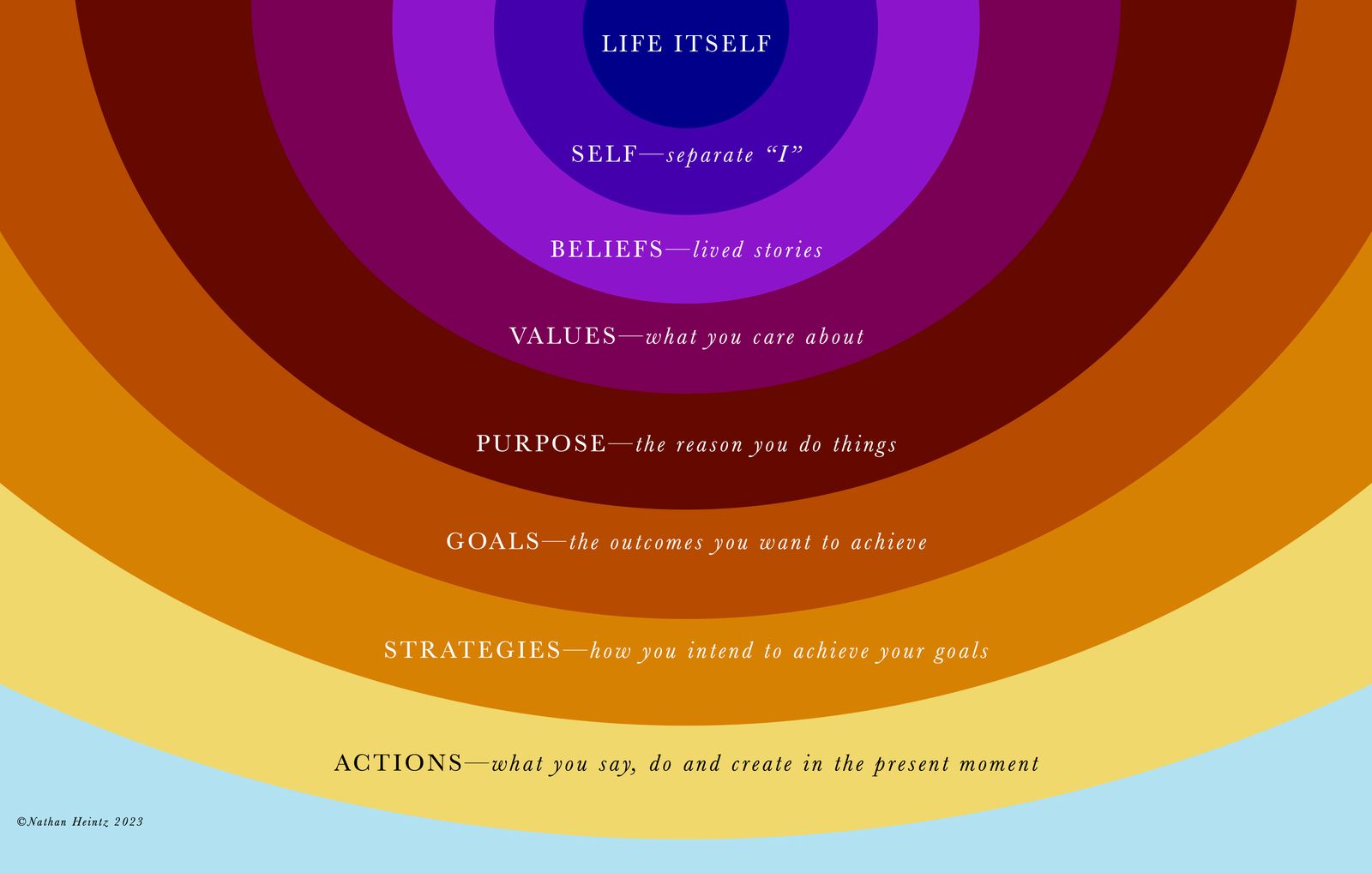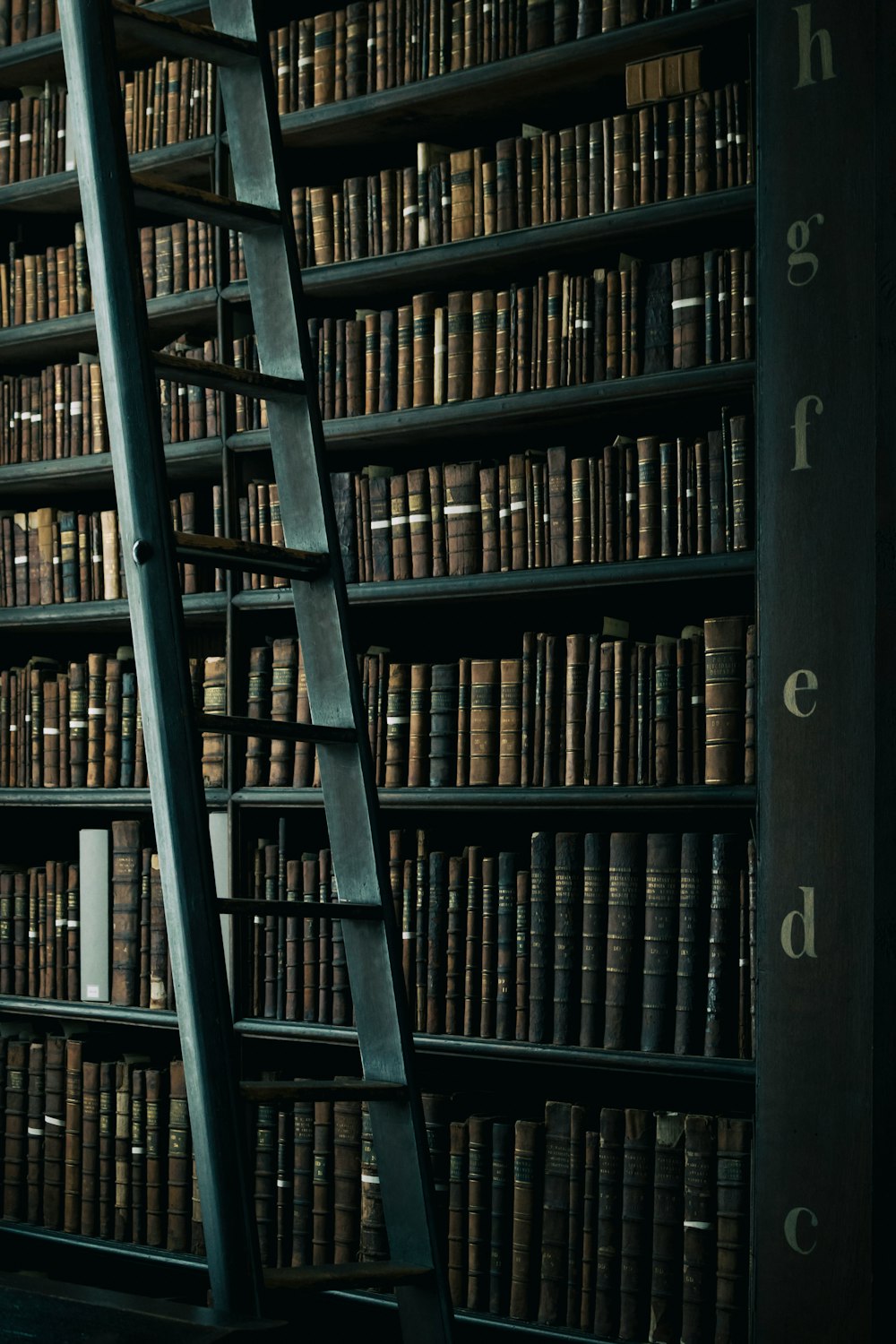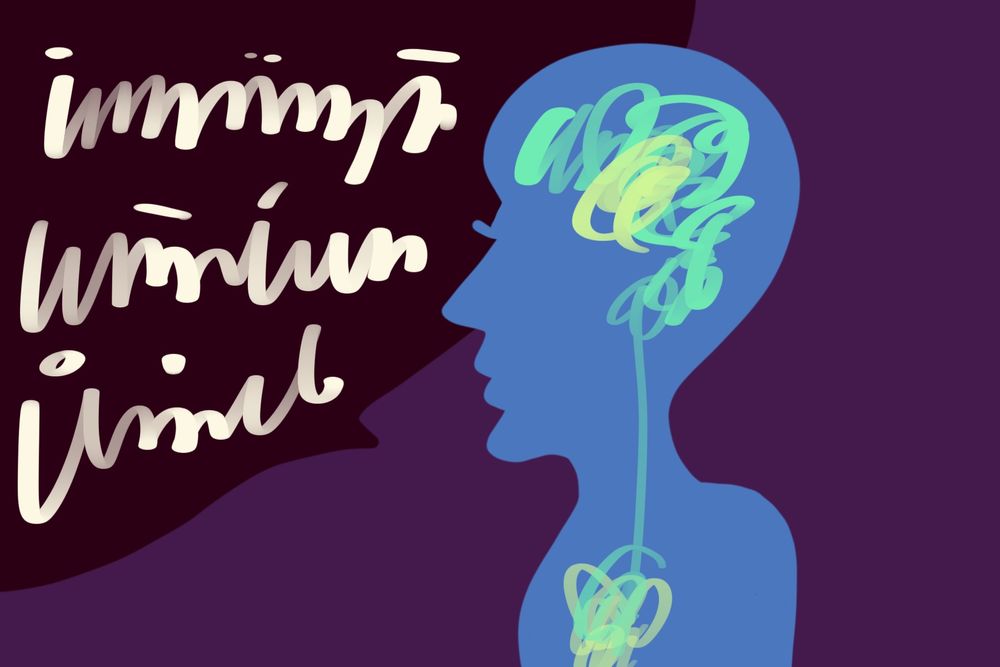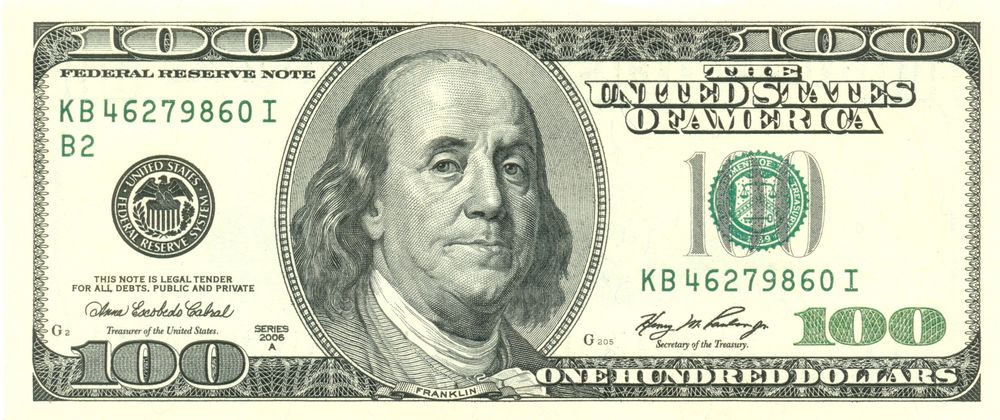Life Itself
What a beautiful, wild Life this is!! We're these strange creatures, crawling around on the walls of the universe, singing and dancing, creating artworks and wars, giving rise to entire worlds in our perceptions, eating fruits that grow out of the dirt and making weird sounds that allow us to time travel and communicate. And everything we do is somehow beholden to the nature and limitations of this blossoming culture sandwiched between life and death! What the actual fuck?
What is this? —Traditional Zen Koan
What is this creative force that is living us? This is Wu Wei. The natural will. Action that happens only by surrender to—or participation in—something greater. Every action that we take is a function of the organic process of Life that is living us! We're in a constant state of movement, change, growth and learning. This is far, far bigger than our individual "will".
Human action, thought, and speech at its root is an expression of a larger process: It's situated and nested in the mysterious process of Life itself: The source of our being and of our experience of ourselves and the world.
This is the vibrant, empty, mirror-axis into and through which all form arises. It's the vast ocean of energy that we all return to. That we never really left. Life itself is who you really are when you let go of your idea of self. It's the part of you that doesn't die, that was never born.
This is Jung's "higher Self" (with a Capital "S" — the same one that Maslow says is trying to actualize). It might be referred to as God, Allah or Yaweh in the Abrahamic traditions. This is Brahman in Hinduism, Buddha Nature in Buddhism, or simply "Everything" if you're Wu Tang.
Everything is everything. Reality, I keep my mind on everything. 'Cause everything ain't always anything. And everything that you see ain't reality, they just illusions. —Cappadonna
This is what Shunryu Suzuki called "Big Mind". Life itself is your mind as it is in it's natural state. Without a sense of self-consciousness or anxiety getting between you and your natural union with the cosmos. This could also be simply called "the universe", "nature", or "consciousness itself" you're more atheistic, or if you're into the whole brevity thing, man.
The Self
The "self" is our particular lived illusion of separation from Life Itself. This is our felt sense of who we are, our individual ego identity, and it includes the other aspects of the landscape below: our beliefs, values, purpose, goals, strategies etc.
But this sense of self also includes our inner wounds, our feelings, habits and behaviors, and our experience of our body. This also includes our ideas about who we are, our limitations and possibilities, our gender and racial identities, and our sense of privacy.
The "self" includes all of the inputs to our individual will, which is how we shape and direct the universal will described above. While our sense of separate self is an illusion, it's also totally real. Clearly we are individuals. Our bodies do die. And our identities and mannerisms and defining characteristics and unique individual expressions dies with it.
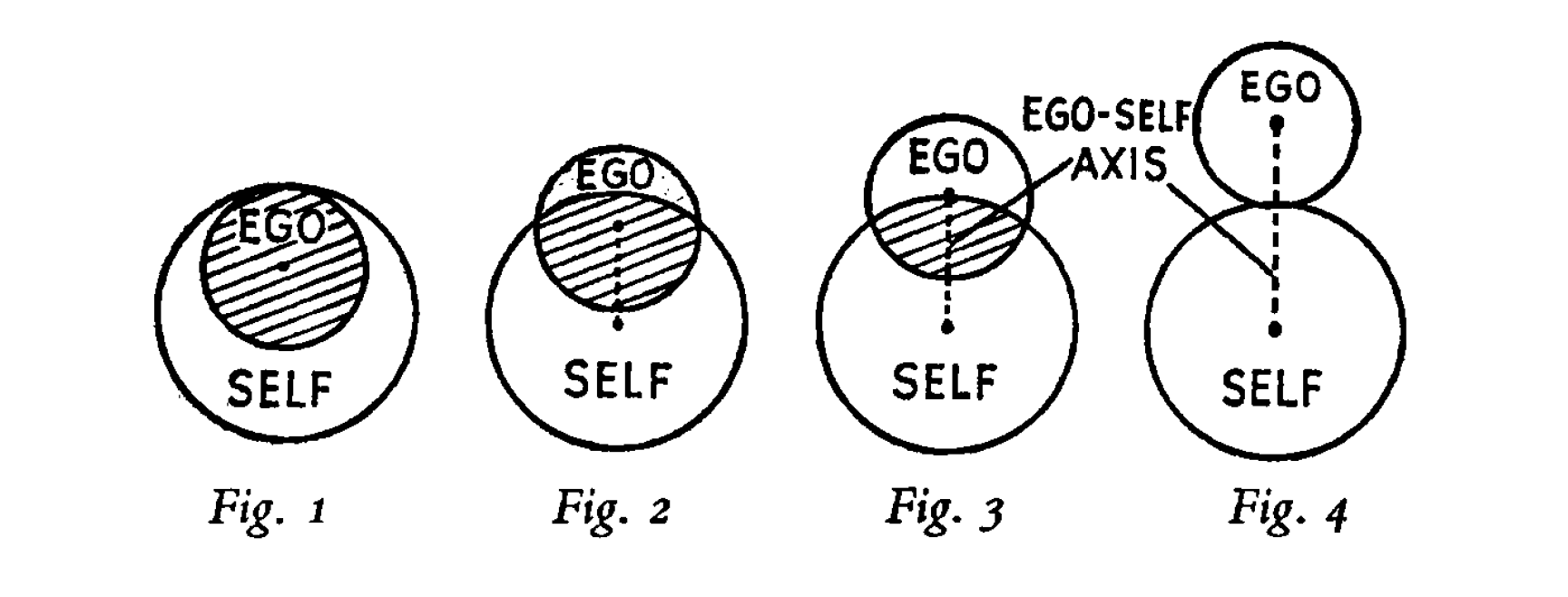
But while our experience of separateness is real, we're still 100% connected and integrated into the larger living system. So from the vantage point of the self, we can catch glimpses of Life itself in peak experiences. We can see through the veil, and break through the perceived limitations of the individual self, into the Larger Self.
This is one of the ways we grow and learn. Sometimes those peak experiences may be wonderful and beautiful, other times they may be tragic and disruptive, but those glimpses into the nature of reality impact and saturate into our identities and cause us to change, and they influence all of the rest of what drives us into taking action: our beliefs and values and sense of purpose.
Beliefs
In essence, beliefs are what is “true” to each of us.
If we look more closely, we see that beliefs are lived stories about the nature of ourselves, others, and the world. Some beliefs are helpful, while others can be saboteurs. For example, if you believe the world is a brutal and unforgiving place, this might influence you to give up on any drive to do real service in the world, and pursue a life that serves only yourself and therefore is devoid of true fulfillment. Or if you believe that humans are naturally inclined to learn new skills, you might be more willing to overlook the difficulty of the learning process, and focus on the outcome you're trying to achieve.
But beliefs can be a little bit squirrelly, too. 🐿
Some beliefs we're totally unconscious of but they drive our behaviors anyway. For example, if you have a lived-story that you're undeserving of love, you might take actions in the world that create a self-fulfilling prophecy situation and drive people away with your behaviors in such a way that you affirm your own beliefs. Meanwhile you might have no idea that you're doing that.
And then on the other hand, you might have false beliefs: Things you think you believe that you don’t actually believe. Stories that you tell yourself, but that you don't live. So for example you may believe that you're a champion of social justice, but then go around causing harm when you try and help people. In this case your values and beliefs are not in accord with your actual actions, and you're living a life of self-deception. In some ways, we all do this. Even the "great master guru types" (haha especially these fools).
Values
Your values are literally what you value. They determine what matters to you. And this is based on your understanding of what it means for something or someone to be “good”. Your values are what you care about, and they determine what you think might be worthwhile to pursue.
For example, some people value biodiversity. They want to see rivers with lots of salmon and beavers, and forests with lots of bears and rabbits and good forest management policies. So they might take up hiking, surfing, or river rafting, or join EarthFirst!, or pursue a degree in Oceanography from UC Santa Cruz. Others might rather put a great deal of value in the generational accumulation of wealth, and providing security for their family members, and educate themselves about business strategy. Other people might most value creative expression, or individual political liberty. And although these values might seem at odds with each other, they could easily all be held by the same person.
And because values tend to powerfully influence our purpose and goals and our strategies for navigating the terrain of our lives, having multiple conflicting values can be confusing or complicate our lives, unless we make hard choices and learn which of our values are really important to us.
Purpose
Purpose is literally the reason we take action. This is our why: it's the reason we set out to do the things we do. Purpose is often directly influenced by our values. It's our values multiplied by some sense of direction. Purpose is like an archetypal drive to carry out our will and identity in the world.
When our purpose is healthy, and informed by our desire to self-actualize, directed by selfless values and the "real" of our desires, it will almost always be expressed through an attitude or project that serves others. And so in cases like this your purpose is your sense of why you are alive, what you are here to do, and how you ought to go about it. It’s your role in the whole, and it influences your interests, the goals you set, and the strategies you employ to meet those goals.
Purpose is how our beliefs, values, interests and intentions interface with our goals, strategies and our actions in the world. And it's alive. It's not like you just "find your purpose and that's it."
Purpose is a path of discovery at the intersection of ourselves and the world, expressed as a form of work, play, or practice.
Goals
Goals are desired outcomes. This is what specifically you want to accomplish to carry out your purpose.
There are three different kinds of goals: Strategic Goals, Targets, and Process Goals. Strategic goals are high level. These are the outcomes you want to see in your life and work. It's what we envision. Targets are more pointed. This is what we're shooting for. We might not get there but it helps to have a really specific goal that you're aiming for. Finally process goals are about how. This is how you're going to go about achieving those outcomes on a day-t0-day basis.
If you want to read more about goal setting, I've written about that here.
Strategies
Strategies are about "how". This is the reasoning behind the specific actions you take. It's how you will try to achieve your goals. So, let's say for example I value expression and embodiment, and my purpose is to express love through the body in the form of dance, and my goal is to become a professional dancer who's thriving inside and out, but right now I'm an RN working two 20-hour shifts per week in a COVID hospital. I might take a couple different strategies to achieving that goal.
One strategy would be to save money for an elite dance education program that would train me to dance and introduce me to the existing world of elite dance professionals. While another strategy might be to save money for living expenses, join a summer dance intensive, later seeking out collaborative art projects with other dancers and applying for dance residencies in Portugal, where I've always dreamed of living. Which strategy I choose would likely be closely related to my conscious and unconscious beliefs, values, sense of purpose, and interests.
Our strategies can be plotted on a chart like this:
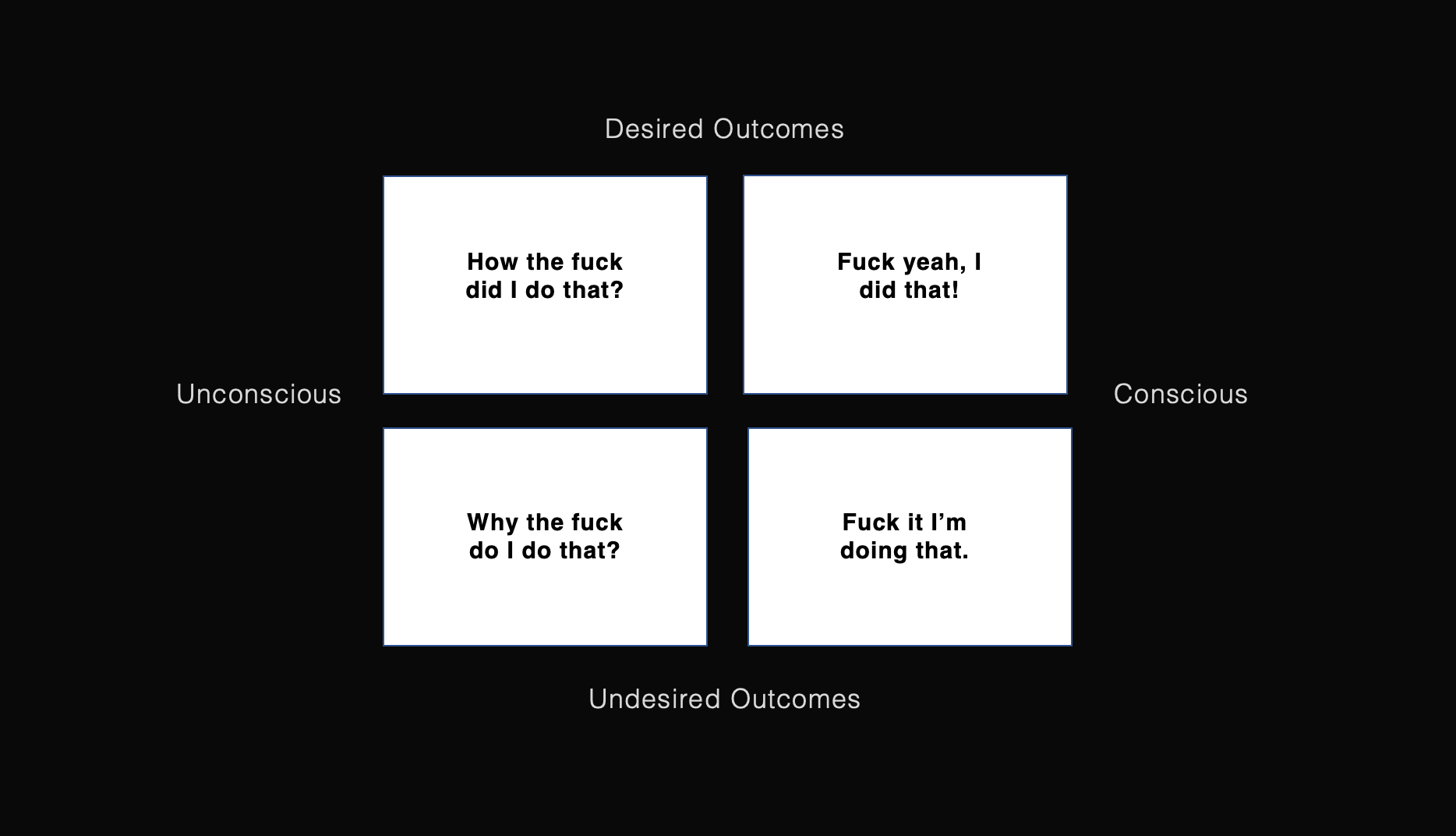
- In the top right, we have a conscious strategy that gave us the outcome we wanted. This is where practices and skills live. This is where our intentions and our actions are in alignment and we're winning.
- In the top left, we got the outcome, but have no idea how we did it. This means we might not be able to do it again. This is where "serendipity" and "luck" come in. We're winging it and it turns out ok.
- In the bottom left, we're employing an unconscious strategy that's derailing our goals and bringing us outcomes that we don't actually want. This is where self-sabotage comes in. We have no idea why we consistently get bad results, but we do.
- And in the bottom right lives those distractions and habits that we hate to love. The debauchery and recklessness that lead us to choose a path that we know isn't going to give us the outcomes we want, but we do them anyway. Things like addictions and poor habits go here.
It would be great if it were simple, but that bottom left quadrant is a doosey. Sometimes conscious strategies are not enough, because we've also got these unconscious strategies that come in and disrupt our plans.
For example, I may be trying to advance my career, but unconsciously value feeling emotionally safe, and therefore have an unconscious goal of leading a life that is invisible to the world and free of criticism and feedback. To this end I may employ the strategy of ensuring that I don't do anything stupid like succeed in any way that would lead me to taking on responsibility and therefore opening myself up to criticism and feedback.
Regardless how effective my conscious strategies are, if I don't unearth and address the unconscious ones, I'm risking failure.
Actions
Our actions are what we do, say and create in the present moment.
This is where we actually have an impact, positive or negative on ourselves, each other and the world. Our conscious and unconscious strategies, goals, beliefs and values show up in every moment, in every interaction.
In our actions, the things we say and do, and how we choose to show up in the world, is how our willpower comes into relationship with the world, in the present moment, is where it all comes alive.
This whole spectrum from Life Itself to Action, can be seen as a process of directing, refining and filtering a raw process of will. The raw, unprocessed will of nature is coming through us, and our sense of self and all it entails filters that universal creative energy—that universal will—and filters it like a prism into the world.
The result is our impact.
I hope you enjoy this framework! If you want to stay updated on ideas and frameworks like this one, subscribe to my occasional newsletter. And feel free to leave a comment below!
